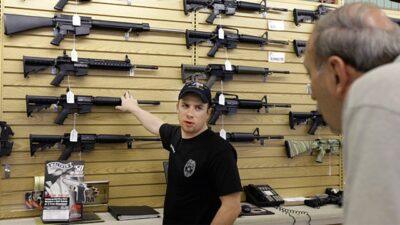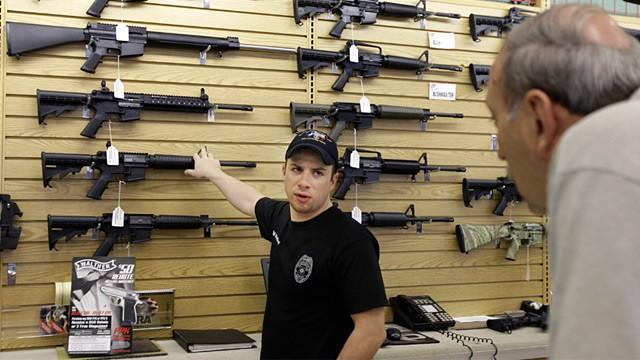
Image source: abcnews.go.com
The Department of Homeland Security (DHS) and the FBI are warning local law enforcement agencies that individuals possessing “large amounts” of ammo and weapons could be potential terrorists.
A joint agency bulletin urged their law enforcement peers to be on the lookout for Americans with “unusual amounts” of guns, ammunition, explosives, accelerants, or explosive precursor chemicals.
An excerpt from the law enforcement bulletin reads:
The following activities could indicate attempts to stockpile large quantities of weapons or explosive materials for use in an attack. Depending on the context time, location, personal behaviors, and other indicators persons who attempt to acquire explosive materials or precursors should be reported to appropriate authorities. Large quantities of weapons are typically cached in a location such as an individual’s home, storage facility, or vehicle, but can be found attended by the individual, such as in luggage while traveling or unattended, discarded or seemingly discarded, in a public area.
Many preppers as gun enthusiasts would fall under the FBI and DHS’s criteria for a potential terrorist. Recently passed and proposed state laws relating to the purchasing of ammo prompted a flurry or sales. As Off The Grid News reported in September, Maryland residents were buying firearms at a record rate of 1,000 per day in the face of a new gun control law that went into effect in October. Gun rights groups said stocking up while the ammunition is not only still affordable, but also available is simply a common sense move.
How to hide your guns, and other off grid caches…
Thousands and possibly hundreds of thousands of American preppers and general gun owners likely had no idea that stocking up on ammo and buying reloading supplies may have landed them on a terrorist watch list.
The DHS and FBI memo goes on to state that “Constitutional activities” should not be reported or necessitate information-sharing. The bulleting goes on to state that Constitutional actions should be reported if the activities “support the source agency’s suspicion that the behavior observed is not innocent, but rather reasonably indicative of criminal activity associated with terrorism, including evidence of pre-operational planning related to terrorism.”
Of course, buying ammunition and guns is a Second Amendment right and therefore constitutional, making the controversial memo contradictory in nature.
The joint Roll Call Release was sent to private security agencies and public first responders of all types. The suspicious activities descriptions detailed in the memo were derived from standard criteria in the Information Sharing Environment (ISE) Functional Standard for Suspicious Reporting document drafted in 2009. The ISE Functional Standard reportedly governs information collections for the Nationwide Suspicious Activity Reporting Initiative – NSI. The NSI is an interagency project which compiles suspicious activity reports from police agencies from throughout the United States.
Exactly when an American’s ammo and gun purchases go from the innocent exercising of Second Amendment rights to potential terrorist activity remains unclear and appears to be quite a subjective process.
The FBI and DHS notice to local police agencies cited the case of Norwegian Anders Behring Breivik as a prime example of the type of folks to watch. Breivik was a mass murderer who reportedly “stockpiled” 12,000 pounds of armor, weapons and “precursors” and hid them in a remote locations before murdering dozens of people in 2011.
